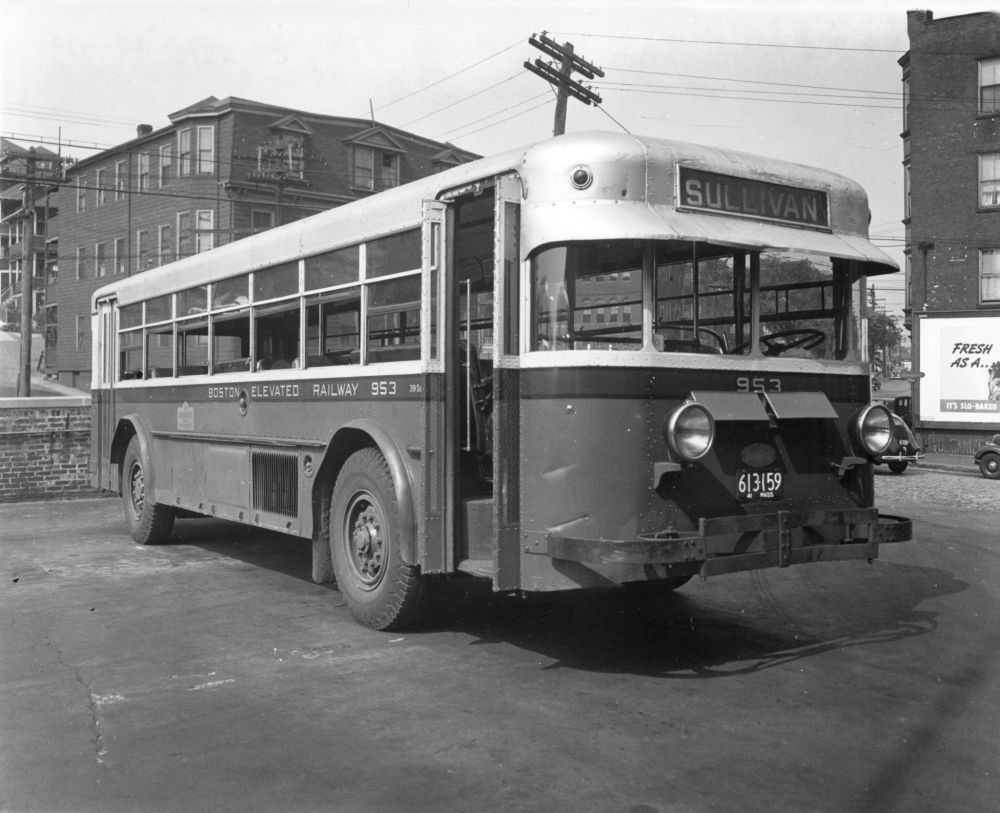
Sister Bus 953 at Union Square Garage on July 25, 1941
- Builder
- Twin Coach
- Description
- dual engine transit bus, model 40
- Secondary Use
- electronics workshop
- Type
- Motor Buses
- Year
- 1932
- Acquired by the Museum
- 1989
- Note
- No. 964 is in poor condition. It is under a tarp and is outside the Central carbarn.
- Fund
- none
Boston Elevated Ry. 964
From Boston, Massachusetts
History
Twin Coach was formed by brothers Frank and William Fageol in 1927 after American Car and Foundry acquired their previous firm, Fageol Motors. Twin Coach was based in Kent, OH and became a major builder of trolley buses and motor buses. The firm’s first model was called the model 100, but later became known as the model 40. The body structure of this new bus was unique in that the body also became the frame and incorporated two Waukesha gasoline engines to obtain the horsepower for higher speeds and carry more passengers, hence the name "Twin Coach". The engines were underneath the bus unlike earlier buses with engines in front. This innovation allowed an increase in capacity to 40 passengers, and made the bus competitive with smaller streetcars. An external visor above the front window was another distinctive feature. Twin Coach soon changed to gasoline engines from Hercules. Twin Coach built over 1,000 model 40 buses.
The Boston Elevated Railway (BERy), which operated Boston’s rapid transit and streetcar service, began using motor buses in 1922. By 1929, BERy had over 300 buses. Twin Coach built No. 964 for BERy in 1932. No. 964’s retirement date is unknown. BERy likely retired No. 964 after the end of World War II and before the Metropolitan Transit Authority took over Boston’s transit system in 1947.
After retirement, a farmer in Stowe, Massachusetts, acquired No. 964 where it became an electronics workshop. Later, Anthony and Melody Batista acquired the farm, including No. 964. In 1989, the Batistas donated No. 964 to Seashore.
Seashore trucked No. 964 to the museum in 1989. Earlier that year, Seashore had also acquired Eastern Massachusetts Street Railway No. 523 which was another Twin Coach model 40 bus. No. 964 was in better condition. Seashore took an axle and the running gear from No. 523 to use on No. 964. Seashore has disposed of No. 523.
Technical Information
- Seats: 39
- Engine: Hercules
Weight and Dimensions
- Length: 31’ 4.00"
- Width: 93.00"
- Weight: 16500 lbs.
© 1998 - 2026 New England Electric Railway Historical Society. All Rights Reserved.